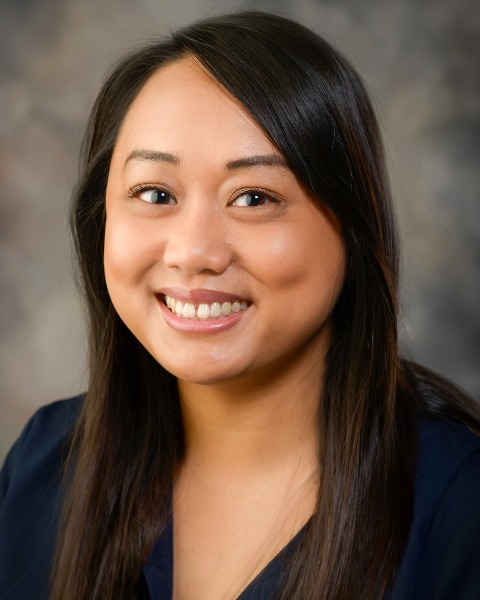Quality Improvement Project
Program: Council on Foster Care, Adoption, and Kinship Care
O4304: Foster Care Elective: A Pilot to Improve Medical Student Knowledge and Clinical Skills in the Delivery of Trauma-informed Care for Children and Families in Foster, Kinship, or Adoptive Care
Monday, October 23, 2023
2:45 PM - 2:50 PM US EDT
Location: H4003: Council on Foster Care Adoption and Kinship Care Program
Purpose/Objectives: To date, there is no formal training for medical students regarding the care of children and youth in foster, kinship, or adoptive care (FKAC). To provide high-quality, trauma-informed care and improve health outcomes of youth in FKAC, physicians must be equipped with the knowledge and skills to care for these patient populations. This project describes the design, implementation, and evaluation of a dedicated Foster Care Elective (FCE) for medical students.
Design/Methods: Guided by Kern’s Six Steps of Curriculum Development in Medical Education, the design of the FCE involved:
1. General Needs Assessment
2. Needs Assessment of Targeted Learners
3. Goals and Objectives
4. Educational Strategies
5. Implementation
6. Evaluation and Feedback
Based on the needs assessment, the learning objectives and educational strategies focused on knowledge and clinical skills unique to the care of children and families in FKAC, delivery of trauma-informed care, integrated care, systems-practice, and advocacy (Table 1). Evaluation methods included direct observation with feedback, retrospective pre- and post-survey, reflection essays, and an end-of-elective presentation with student-led discussion. The FCE was initially piloted during the fall of the 2019-2020 academic year, paused during the 2020-2021 academic year due to the COVID-19 pandemic, and resumed in the 2021-2022 academic year and thereafter. The FCE is offered to one student per block, of which there are 12 total blocks per academic year.
Results: During the initial pilot years of 2019-2020 and 2020-2021, four students participated in the elective. Nine students participated in 2021-2022, and eight students have participated thus far for the 2022-2023 academic year. 57% (n = 12) completed the end-of-elective evaluation; of whom, 67% were female; 83% were 4th year students; 83% had no previous experience working with children in foster care. Elective students reported improved knowledge (e.g. how a child enters foster care), self-efficacy (e.g. obtaining a trauma-informed history and physical exam), and attitudes (e.g. importance of foster care education) regarding the care of children and families in foster care (Figure 1).
Additionally, medical students highlighted the following strengths of the elective: diversity of learning experiences, quality of teaching, and the trauma-informed passport. Potential areas of improvement include more time in our Child Abuse clinic and clarification of roles when senior residents/other team members are with the medical student.
Conclusion/Discussion: An interactive, experiential, and multidisciplinary 4-week elective focused on the care of children and families in FKAC is effective in improving the knowledge, perceived self-efficacy, and attitudes of medical students in the provision of trauma-informed care for this pediatric population. Feedback from medical students suggest that the FCE is valuable, interesting, and inspiring. Next steps include wider dissemination and a more formal evaluation of the elective.
Design/Methods: Guided by Kern’s Six Steps of Curriculum Development in Medical Education, the design of the FCE involved:
1. General Needs Assessment
2. Needs Assessment of Targeted Learners
3. Goals and Objectives
4. Educational Strategies
5. Implementation
6. Evaluation and Feedback
Based on the needs assessment, the learning objectives and educational strategies focused on knowledge and clinical skills unique to the care of children and families in FKAC, delivery of trauma-informed care, integrated care, systems-practice, and advocacy (Table 1). Evaluation methods included direct observation with feedback, retrospective pre- and post-survey, reflection essays, and an end-of-elective presentation with student-led discussion. The FCE was initially piloted during the fall of the 2019-2020 academic year, paused during the 2020-2021 academic year due to the COVID-19 pandemic, and resumed in the 2021-2022 academic year and thereafter. The FCE is offered to one student per block, of which there are 12 total blocks per academic year.
Results: During the initial pilot years of 2019-2020 and 2020-2021, four students participated in the elective. Nine students participated in 2021-2022, and eight students have participated thus far for the 2022-2023 academic year. 57% (n = 12) completed the end-of-elective evaluation; of whom, 67% were female; 83% were 4th year students; 83% had no previous experience working with children in foster care. Elective students reported improved knowledge (e.g. how a child enters foster care), self-efficacy (e.g. obtaining a trauma-informed history and physical exam), and attitudes (e.g. importance of foster care education) regarding the care of children and families in foster care (Figure 1).
Additionally, medical students highlighted the following strengths of the elective: diversity of learning experiences, quality of teaching, and the trauma-informed passport. Potential areas of improvement include more time in our Child Abuse clinic and clarification of roles when senior residents/other team members are with the medical student.
Conclusion/Discussion: An interactive, experiential, and multidisciplinary 4-week elective focused on the care of children and families in FKAC is effective in improving the knowledge, perceived self-efficacy, and attitudes of medical students in the provision of trauma-informed care for this pediatric population. Feedback from medical students suggest that the FCE is valuable, interesting, and inspiring. Next steps include wider dissemination and a more formal evaluation of the elective.

Hilda Loria, MD, MPH, FAAP (she/her/hers)
Assistant Professor of Pediatrics
UT Southwestern Medical Center
UT Southwestern Medical Center
Irving, Texas

.png)
